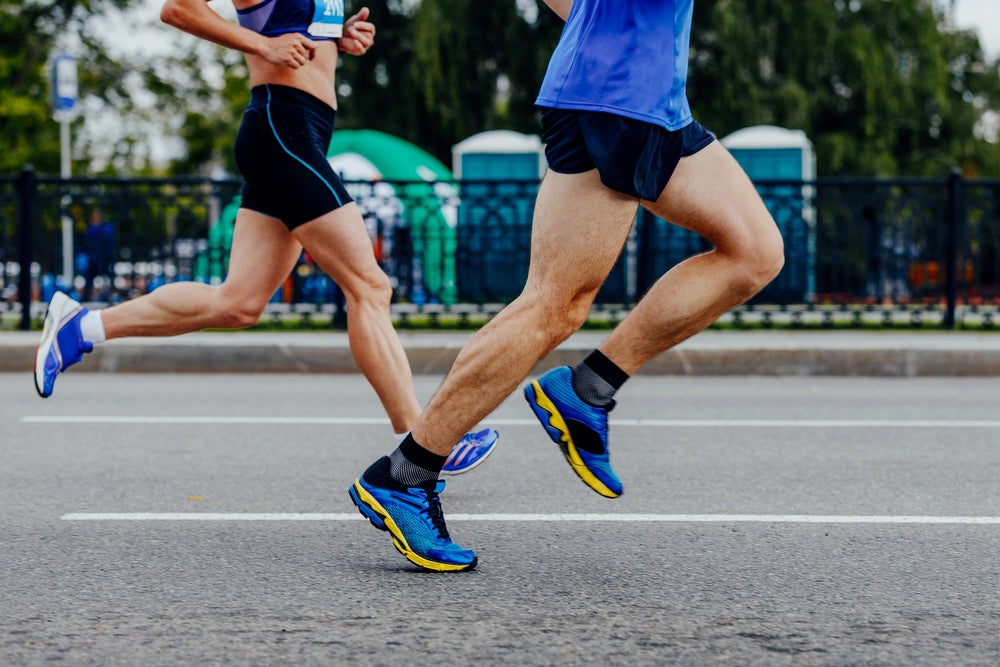The Importance of Keeping Your Hormones Balanced

Photo: Shutterstock.com
Under most circumstances, you don’t have to think about hormones. If you’re eating and sleeping and generally a healthy human, your endocrine system hums along on autopilot. But triathletes are often far from normal. Inveterate tinkerers, triathletes are always looking to tweak the system, and hormones are a tempting piece of the performance puzzle to manipulate. But Dr. Anthony Hackney, professor of exercise physiology and nutrition at the University of North Carolina at Chapel Hill, warns not to try this at home.
“Hormones fluctuate and interact in different ways at different times,” said Hackney, author of Endocrinology of Physical Activity and Sport. “They also have primary jobs, secondary jobs, tertiary jobs, and that adds to the complexity. Basically, an endurance athlete needs the right balance of hormones for the energy to do the training and the right balance to adapt to that training and improve.”
Two main hormones involved in regulating the fuel needed to do hours of activity are insulin and cortisol. Insulin regulates the use of carbohydrate stores, and cortisol regulates the breakdown of fat, the body’s sources of energy.
Testosterone in men and women, growth hormone and insulin-like growth factors build, repair and help the body recover from the stress and breakdown of training. They’re critical for building structural proteins (think muscle) and for making the enzymes that control biochemical reactions. Adaptation to training happens in the absence of stress, during rest.
“If you eat well and get adequate sleep, hormones will do their job,” Hackney said. “If you want them to do their job better, you have to provide a stimulus. Daily training is that stimulus.”
Ideally, as you increase training volume and intensity, recovery hormones will respond by building more muscle and more enzymes to facilitate more biochemical reactions, which then enable even more work. The entire system is ramped up, but the balance of work and rest, breakdown and repair—and the hormones that regulate those processes—is maintained. However, it’s easy to see how a competitive athlete would be tempted to game this upward spiral, wedging in a third hard workout in the week at the expense of a rest day, for example.
Hackney described three ways that hormonal balance can be disrupted. Not eating enough calories—or the wrong types of calories—is one. “The body likes mixed diets—carbs, fat and protein,” Hackney said. “Diets that restrict one of those nutrients may work for a short period, but they’re not sustainable and will ultimately throw off hormonal balance.”
Overtraining is another. If you’re not allowing yourself time between hard training efforts, you’re providing too much stimulus and not enough time for adaptation. While simply working out too hard or too frequently certainly can be the root of overtraining, so can things like not getting adequate sleep or stressors like work, relationships and finances. Of these, the volume and intensity of training is often the easiest to control.
And third, performance-enhancing drugs (PEDs). Remember that complex interplay we mentioned earlier? Even using a drug that seems like a no-brainer to some—testosterone or HGH—will have secondary and tertiary effects that may negate any other gains. Exogenous hormones like these signal the body to stop producing its own, with damaging long-term consequences.
How much training can your body handle? How much recovery do you need? How many calories? How much sleep? Is that sluggishness due to heavy training or overtraining? As any athlete knows, it’s a fine line between peak fitness and overtraining, between hormonal balance and imbalance.
“That’s the art aspect of coaching,” Hackney said. “People are individual; one size does not fit all. Generally, if you’re restless, not motivated, tired, not sleeping well, and those symptoms become persistent and consistent; if you’re not recovering between workouts, those are signs you’ve pushed too far, of possible hormonal imbalance.”
Seeing an endocrinologist may not be a practical option, and primary care doctors are not always familiar with the demands of endurance training. Hackney offered two doctor-it-yourself points to ponder: Make certain you’re allowing yourself rest and recovery, not only day-to-day but in annual training cycles; be sure you’re eating enough and eating healthfully. “Athletes usually know what they’re supposed to be doing, but knowledge does not always convey action,” Hackney said